Food firms revolt over Labor’s energy plan
Employers supplying food to the major shopping centre retailers and thousands of cafes, restaurants and pubs are urging Anthony Albanese to drop his 82 per cent renewables target and focus on ramping up coal and gas production.
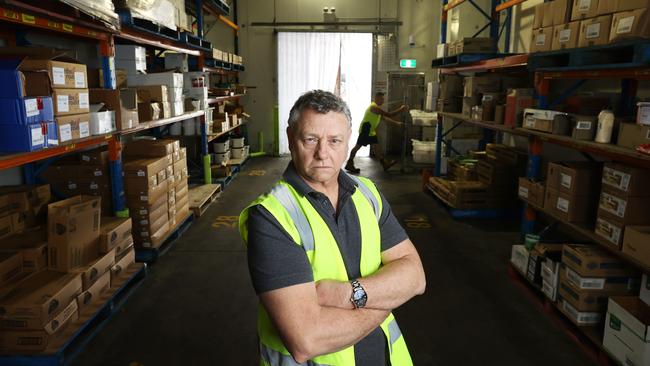
Employers supplying food to major supermarkets and thousands of cafes, restaurants and pubs have launched a revolt against Anthony Albanese’s energy policies, urging Labor to dump its 82 per cent renewables target and focus on ramping up more gas and coal production to bring electricity prices down in the short term.
The Independent Food Distributors Australia – whose members use large chillers and freezers to store and supply food for 60,000 retailers – has broken with other peak industry bodies and is calling on the Albanese government to recalibrate its climate change agenda, with business owners reporting energy price increases of more than 50 per cent since Labor gained power.
Business owners in the sector have told The Australian they want the government to drop its “ideological” approach to energy and instead support upgrades of existing coal-fired power stations while bringing on new gas peaking plants.
Employers also want the government to fast track the approvals of new coal mines and gas fields to lower the price of baseload power, disagreeing with Energy Minister Chris Bowen’s claim that new renewables projects are the answer to lower prices.
The intervention from the food sector comes ahead of the first parliamentary sitting week of the year, with Labor aiming to legislate nearly $14bn in production tax credits for hydrogen and critical minerals developments. But the Prime Minister has walked away from attempting to establish a federal Environment Protection Agency before the election, under pressure from miners and the West Australian government warning it could impede development.
IFDA chief executive Richard Forbes said there was a “national energy emergency”, arguing the government’s policies were driving up the price of food for consumers. “Based on the impact of the level of increase in energy pricing for food businesses, and the downstream impact for consumers … there should be a very serious look at the approach towards net-zero at present because of the damage that is being done,” Mr Forbes said.
“It’s very clear … that the damage is affecting the viability of businesses and is affecting the ability of consumers to purchase the food that they would like.
“I don’t think it ever hurts to have a recalibration when people are hurting.”
Mr Forbes said the “clear message” from IFDA’s 200 members, which employ 8500 people, was that coal-fired power generation was being phased out too quickly and the renewables target of 82 per cent by 2030 was problematic.
Under Labor’s plan, 90 per cent of coal-fired power stations will be retired within the next decade and there will be no coal generation by 2038.
“As far as I am concerned, the government’s energy policy has and continues to increase the price of food,” Mr Forbes said.
“Food businesses are sick and tired of hearing the government saying they are doing something about the cost of living, when their costs, particularly energy costs, are soaring.
“The government must take responsibility for a portion of the cost-of-living crisis, which is the cost of doing business, which is energy.”
Rejecting the push from food distributors, a spokesman for Mr Bowen said experts had found that “unreliable coal generators are driving price spikes”.
“Extending them further would be a recipe for disaster,” the spokesman said. “After a decade of neglect under the Liberals, energy prices for small businesses are too high and exposed to international shocks.
“That’s why we’ve prioritised getting energy prices down in the short and long term. We’ve delivered $650 in energy bill relief to small businesses — bill relief Peter Dutton fought against.”
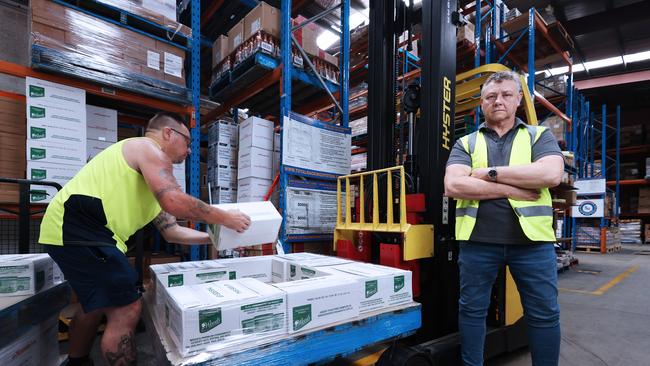
Godden Food Group employs 130 people in NSW and Queensland, distributing food to Woolworths and Coles, as well as cafes, restaurants, pubs and clubs.
The company’s four-year energy contract expired in December. The new deal is at a rate 238 per cent higher in its NSW storage facilities and 90 per cent higher in Queensland, according to managing director Jeff Godden.
Mr Godden said he would have to pass on about half of the increased costs for food storage which would lead to higher prices at the supermarkets.
“The government can make a smoke screen out of it all they like, about supermarkets gouging,” Mr Godden said.
“The reality is, they don’t want to talk about the cost of energy and how it’s affecting that supply chain.”
Mr Godden said the government was “chasing this renewables policy as a political agenda”. He went further than the industry body in calling on the Prime Minister to join Donald Trump in leaving the Paris agreement.
He said it was a “disgrace” that Mr Albanese, Mr Bowen and Jim Chalmers would not admit the government had failed to deliver on its pre-election commitment to lower electricity prices by $275 on 2022 levels by this year.
“Answer the question,” Mr Godden said. “I think they’re treating the Australian people like idiots, like fools.”
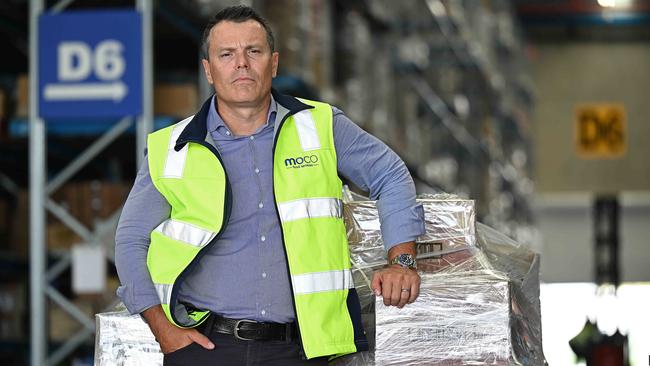
Moco Food Services chief executive Mike Peberdy, whose Brisbane-based company supplies 3000 restaurants, cafes, pubs and clubs, said his monthly electricity bill had increased by 50 per cent to $45,000.
Mr Peberdy said he was “concerned about the long-term viability of the industry”.
“Businesses like ourselves and others in the industry make very, very low, single-digit net-profit margins,” Mr Peberdy said “It really does depend on high volume and so any increase in our input cost has to be passed on to the cost of the products that we sell.
“Very simply, our customers are paying more, and they then therefore have to charge more to their customers.”
Mr Peberdy said he was concerned the Albanese government’s energy policy was “driving up costs”.
“I think we’re pursuing some ideological sort of outcomes, rather than a focus on actually delivering … cheap energy,” he said.
“There needs to be a focus on shoring up our short-term power requirements using coal and gas in order to reduce the cost to consumers and business.
“We used to be a low-cost power country, and now we’re high. It seems like a crazy destruction of wealth across the Australian population.”
Damon Venoutsos, managing director of New West Foods – the largest independent food distributor in Western Australia with 1500 customers including stadiums, fish-and-chips shops, schools, sporting clubs, airlines and cruise ships – said his company’s electricity bill had doubled in the past three years, to more than $30,000 a month.
Mr Venoutsos said the government had been “posturing” on its support of gas, arguing more needed to be done to bring on supply. The company bought new land in 2021 to expand its operations but has had to put building a new warehouse on ice.
“It is a threat to our growth operation, it is impeding growth,” he said.
“Our strategy was probably that (the new warehouse) would have given us about 30 to 40 per cent growth (in yearly revenue).
“We probably would have employed another dozen or so people.”
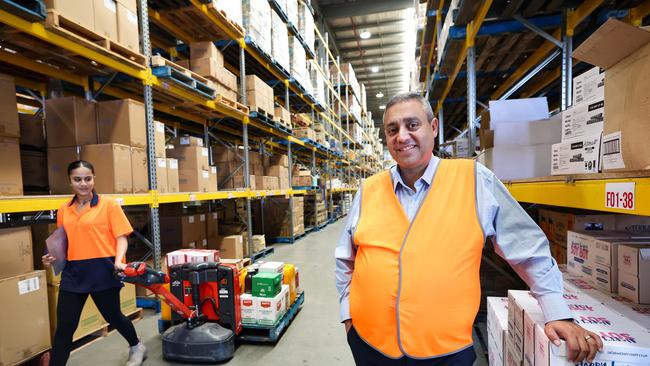
On Sunday, Peter Dutton claimed electricity prices under his nuclear policy would be 44 per cent cheaper than Labor’s by 2050, because his modelling showed the Coalition’s plan was that much cheaper to implement.
“If you’re delivering a model that’s 44 per cent cheaper, that translates into cheaper power prices,” the Opposition Leader told the ABC.
“If there’s a 44 per cent reduction in the model of delivering an energy system, you would expect a 44 per cent reduction, or of that order, being passed through in energy bill relief.
“In the interim, we’re going to have to do a lot more with gas, with coal in the system.”


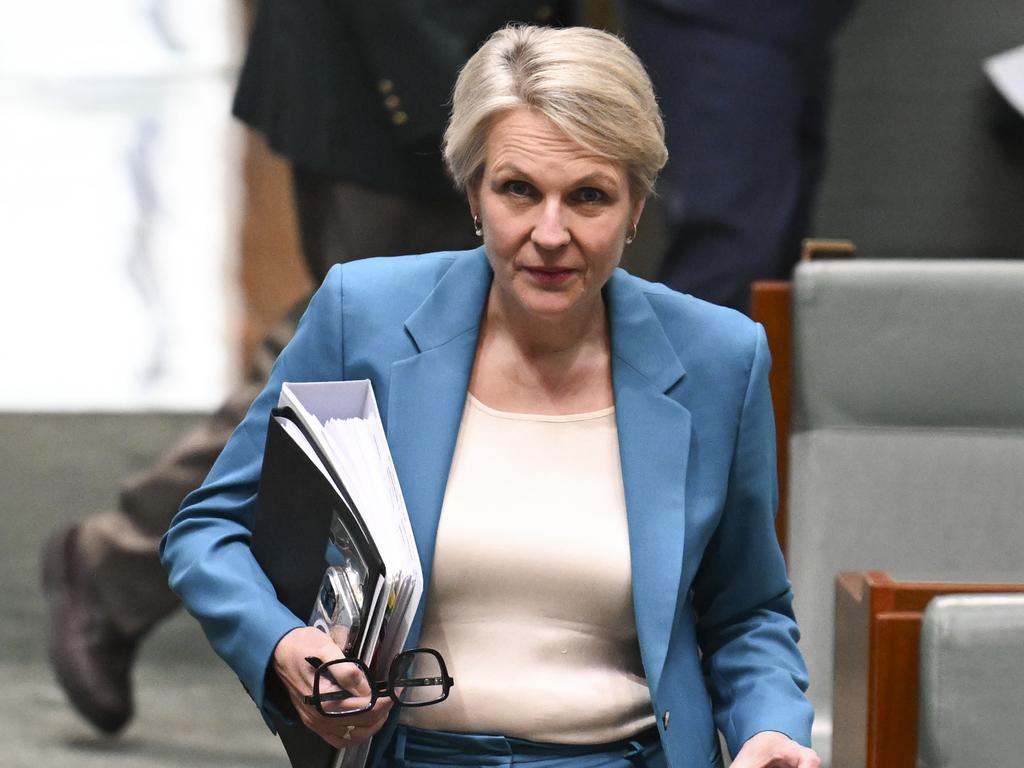



To join the conversation, please log in. Don't have an account? Register
Join the conversation, you are commenting as Logout